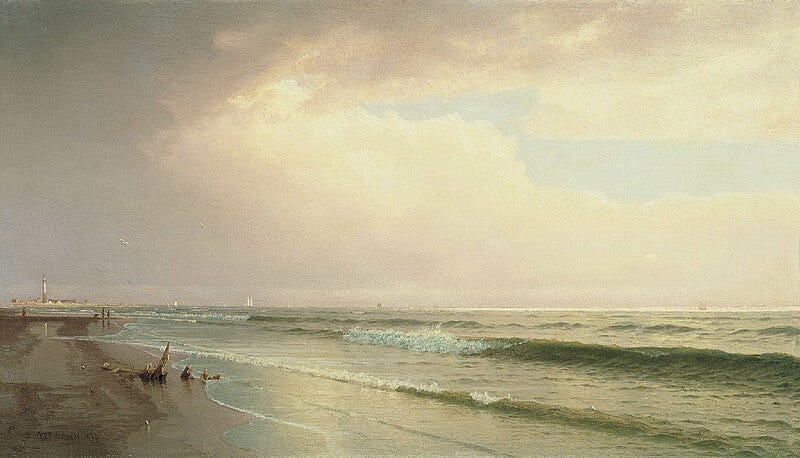Today’s Poem: The Tide Rises, the Tide Falls
Henry Wadsworth Longfellow and the tides of celebrity

Today is the birthday of the nineteenth-century American Fireside Poet, Henry Wadsworth Longfellow (1807–1882) — so famous in his lifetime that schoolchildren all over the expanding country celebrated this day as a kind of civic feast. It’s hard for us, maybe, to imagine the extent to which a single literary figure could command the imagination of an entire culture. But Longfellow’s reach was enormous.
People recited his verse in their parlors of an evening, or at town socials. Phrases from Longfellow, like phrases from Shakespeare, have passed so completely into our common language that we don’t even stop to ask who first spoke of ships that pass in the night. His epic-length poems, “Paul Revere’s Ride,” “Evangeline,” and “The Song of Hiawatha,” entered the canon of American mythology — which they might be said to have created in the first place. As a testimony to his stature as a Great American, not…
Keep reading with a 7-day free trial
Subscribe to Poems Ancient and Modern to keep reading this post and get 7 days of free access to the full post archives.



